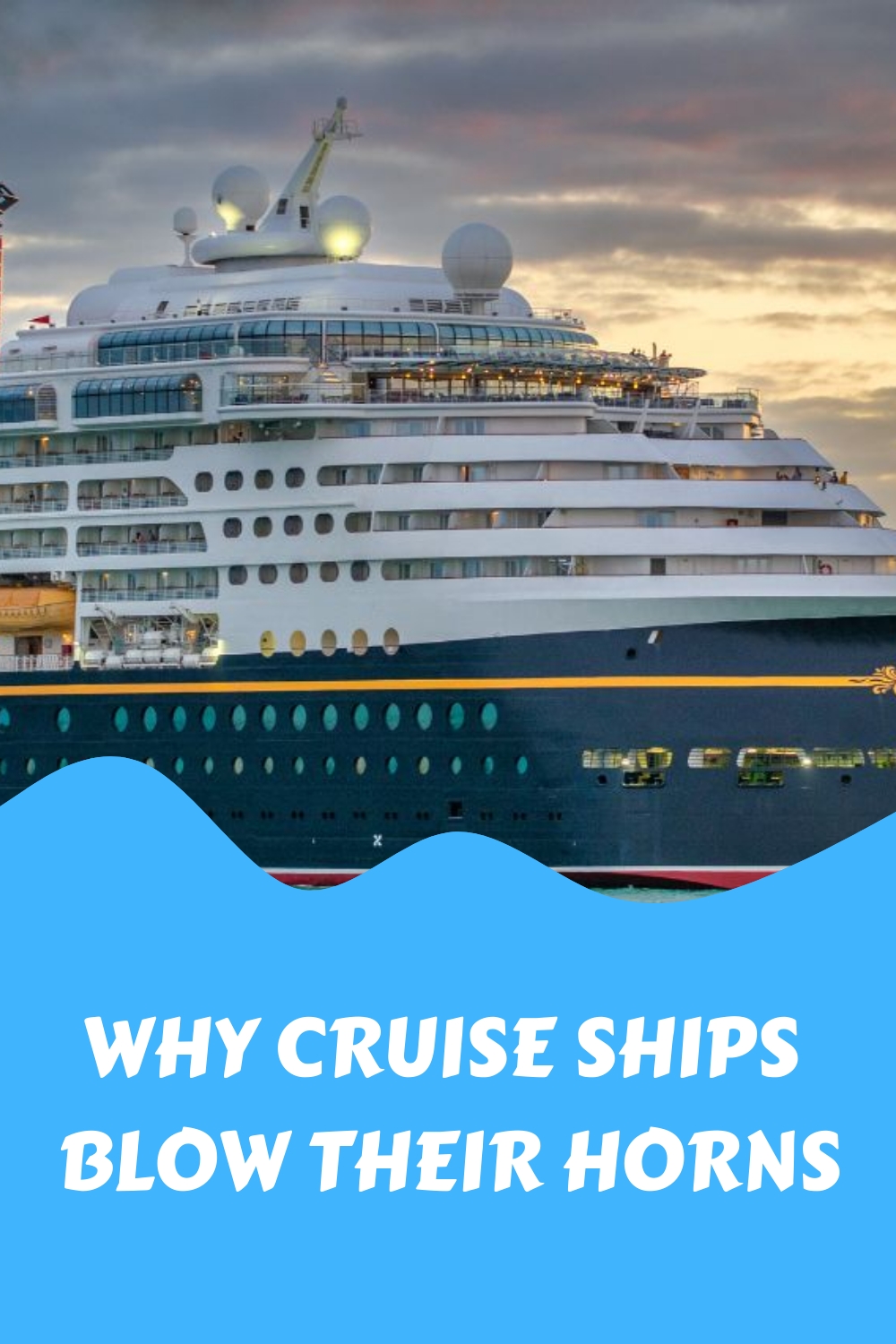Communication – Cruise ships blow their horns to communicate with other vessels. This can include saluting other ships, indicating a planned movement, or announcing an arrival or departure.
Quick Navigation
Why do cruise ships have horn battles

Ship horn sound is not only the simple signal but also the way ships say goodbye. A collection of funny ship horn battles. Actually, it’s not the battle or competion. It’s the fun way the ships say goodbye to each others.
In the vast ocean, with the sun reflecting off the sparkling waves, you may have experienced the magnificent sight of a majestic cruise ship sailing into the distance.
As it gracefully glides across the water, you can’t help but notice the resounding sound of its horn echoing through the air. But have you ever wondered why cruise ships blow their horn? In this article, we will explore the reasons behind this age-old maritime tradition.
1. Safety Communication
Cruise ships navigate through busy waterways, interacting with other vessels, including smaller boats and ships. The horn serves as an essential safety communication tool, allowing the cruise ship to signal its presence and intentions to nearby vessels.
By producing different sound patterns, such as short and long blasts, the ship’s crew can convey important messages, including passing intentions, warnings, or emergency signals.
2. Departure and Arrival Announcements
When a cruise ship departs from or arrives at a port, the horn is blown as part of the ceremony. It signifies the embarkation or disembarkation of passengers and creates an exciting atmosphere. These loud blasts from the horn serve as a way for the ship to bid farewell or greet the port and its visitors.
3. Nautical Milestones
As cruise ships embark on their voyages, they often pass by famous landmarks or significant maritime locations. Blowing the horn at these nautical milestones is a way to pay homage and acknowledge the historical importance of these places.
It adds an extra element of excitement for passengers and allows them to appreciate the significance of these destinations.
4. Communication with Crew and Passengers
The horn is also used as a means of communication between the ship’s crew and passengers. Cruises often have specific signals in place, such as sounding the horn before scheduled activities or to announce meal times.
This helps everyone on board stay informed about the ship’s schedule and upcoming events.
5. Celebration and Festivities
Just like fireworks and confetti, the sound of the horn can create a festive atmosphere during special occasions or celebrations on the cruise ship.
Be it New Year’s Eve, a wedding, or a grand event, a resounding blast from the horn signifies joy, excitement, and merriment. It adds an extra touch of magic to the festivities and creates lasting memories for passengers onboard.
6. Saluting Other Ships
When two cruise ships cross paths at sea, it is customary for them to exchange a horn salute. This gesture serves as a sign of respect and is a way of acknowledging the presence of fellow sailors. It’s a tradition that fosters a sense of camaraderie and reminds us of the unity among seafarers.
Frequently Asked Questions
Why Do Cruise Ships Blow Their Horn?
Cruise ships blow their horn to communicate important messages and signals to the crew, port authorities, and other vessels nearby. It ensures safety during navigation and alerts for departing or arriving at a port.
Are Cruise Ship Horn Sounds Standardized?
Yes, cruise ship horn sounds follow a standardized code. Different horn patterns indicate specific messages, such as greetings, emergencies, maneuvering alerts, and departure signals. These codes are recognized and understood universally.
How Loud Is A Cruise Ship Horn?
Cruise ship horns can reach up to 140 decibels, which is equivalent to the loudness of a gunshot. However, modern cruise ships are equipped with noise reduction technology to minimize the impact on surrounding areas.
Do Cruise Ships Blow Their Horn Just For Fun?
No, cruise ships do not blow their horns solely for fun. They primarily use their horns for safety purposes and to comply with maritime regulations. However, during special events or celebrations, they may use their horns to create a festive atmosphere.
Conclusion
The sound of a cruise ship’s horn resonates with power, signaling its presence, and communicating vital messages to other vessels.
From safety communication to celebration and acknowledging nautical landmarks, the horn plays an integral role in maritime traditions. So, the next time you witness a cruise ship blowing its horn, you can appreciate the myriad reasons behind this fascinating practice.
